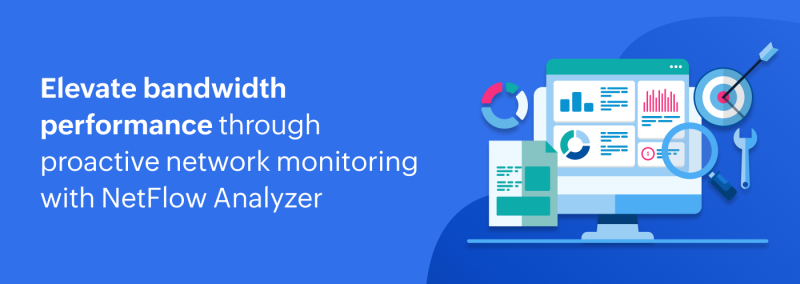
Remote work has become the new norm. Organizations are adapting to the current volatile market conditions by amending their business strategies, drafting new business playbooks, and laying down novel policies, all centered around one theme: remote work.
This transition to remote work certainly hasn’t been easy and brings with it a unique set of challenges. Shifting business operations to remote environments profoundly impacts an organization’s IT infrastructure and in-house networks. Bandwidth anomalies, VPN performance, security bottlenecks, and network configuration complications are some unprecedented predicaments that can impede a remote workforce’s productivity.
This blog sheds light on the crucial metrics that organizations must monitor to help maintain their operational continuity and enable their remote workforce. We’ll also discuss the role of an alarm-based security system in streamlining the troubleshooting of identified faults.
What metrics are important to watch for remote-work environments?
Being relatively new, the remote-work setting might demand additional network components and innovative services. It may also hamper the configuration and maintenance of the existing IT infrastructure. This is why monitoring pertinent metrics to determine the health and performance of an organization’s IT infrastructure is essential.
These are some of the vital metrics organizations need to track in the work-from-home environment:
-
VPN tunnel status: Availability of VPN tunnels helps ensure the continuous flow of data across endpoints, and between remote endpoints and corporate networks. This is why monitoring the VPN tunnel status metric is vital, as it presents a clear picture of which VPN tunnels are up and running and which ones are dormant.
-
VPN peak hour utilization: Keeping tabs on VPN usage trends helps gauge the average demand for VPN connections at various instances across a day. The peak hour utilization metric, which depicts the maximum number of VPN connections established in a day, helps in VPN capacity planning and forecasting. Tracking this metric helps organizations assess the demand and scale up their VPN infrastructure accordingly.
-
VPN IP destinations: Monitoring the destinations on the internet remote workers via VPN connections land on or demand access to is vital, as these IPs can serve as potential hotspots through which malicious actors can jeopardize the integrity of corporate networks. So, tracking VPN IP destinations can help blacklist hostile IPs and avert imminent threats.
-
Bandwidth consumption: Unavailability of adequate bandwidth can profoundly impact the performance of vital applications. Consistent monitoring of bandwidth consumption helps zero in on IPs consuming inordinate levels of bandwidth and, in-turn, can help organizations curtail their usage.
-
Compliance with security policies: Remote endpoints have a higher probability of getting infected compared to traditional on-premises workstations. Organizations must formulate security policies to safeguard remote endpoints from being threatened, and monitor every remote asset’s compliance with these policies. Only after a device’s compliance is validated should it be granted access to business-critical services.
-
Configuration changes: Network configurations have to be modified to deliver a seamless experience to remote users. However, manually performing these operations is risky, since even the slightest error could lead to a data breach or a network outage. Monitoring configuration changes round the clock can help ward off network mishaps.
How does an alarm-based security system fit in a remote-work environment?
Instant alarms raised after faults are identified in a network can help streamline troubleshooting before they disrupt operations. This is why commissioning an alarm-based security system will work wonders for a remote workforce.
With a robust security system, you should be able to:
-
Monitor all types of alarms from a single console.
-
Configure multi-level thresholds for metrics, and check for violations.
-
Acknowledge attended alarms to avoid redundant examination of resolved issues.
-
Escalate alarms to appropriate e-mails/IDs when they haven’t been attended to.
-
Suppress alarms for a defined time period—for example, during maintenance.
-
Broadcast alerts over multiple notification profiles such as e-mail, SMS, and Slack.
ManageEngine ITOM solutions: Your first and last line of defense
ManageEngine’s range of IT operations management (ITOM) solutions can help organizations transition into remote work effortlessly. Our ITOM products can help businesses resolve their network, configuration, application, network security, and server management problems resulting from the sudden remote-work scenario.
-
ManageEngine OpManager, a comprehensive network monitoring tool, has a built-in VPN monitoring feature that helps monitor the performance and availability of VPN connections. OpManager’s alarm-based security system also enables network administrators to proactively detect faults and take remedial measures before they impact business operations.
-
ManageEngine Firewall Analyzer helps plan capacity and keep tabs on the security of VPN connections to prevent cyberattacks and inappropriate VPN usage.
-
ManageEngine NetFlow Analyzer leverages flow technologies to provide real-time visibility into network bandwidth performance to detect bandwidth anomalies.
-
With ManageEngine Network Configuration Manager, organizations can remotely make configuration changes, automate tasks, back up configurations, and check for compliance violations.
ManageEngine’s arsenal of ITOM solutions are all a business needs to bolster its remote workforce and ensure business continuity. Let ManageEngine’s range of ITOM solutions do the heavy lifting for your business!
To learn more on how ITOM solutions can support a remote workforce, try out a free, 30-day trial of our products, or register for a free, personalized demo.
